
Ducks are my favorite. Don’t tell the chickens! Raising ducks and raising ducks for eggs is one of the most incredible experiences you’ll ever have. Ducks are so personable, dependable, and smart. They tend to be more hardy that other poultry, as well. Could it be because they are slightly less domesticated than the modern chicken? Maybe. But either way, raising ducks and ducklings is pretty easy!
In this blog post I’m going to go over some basic easy steps to start raising ducks on your homestead, and especially raising ducks for eggs!
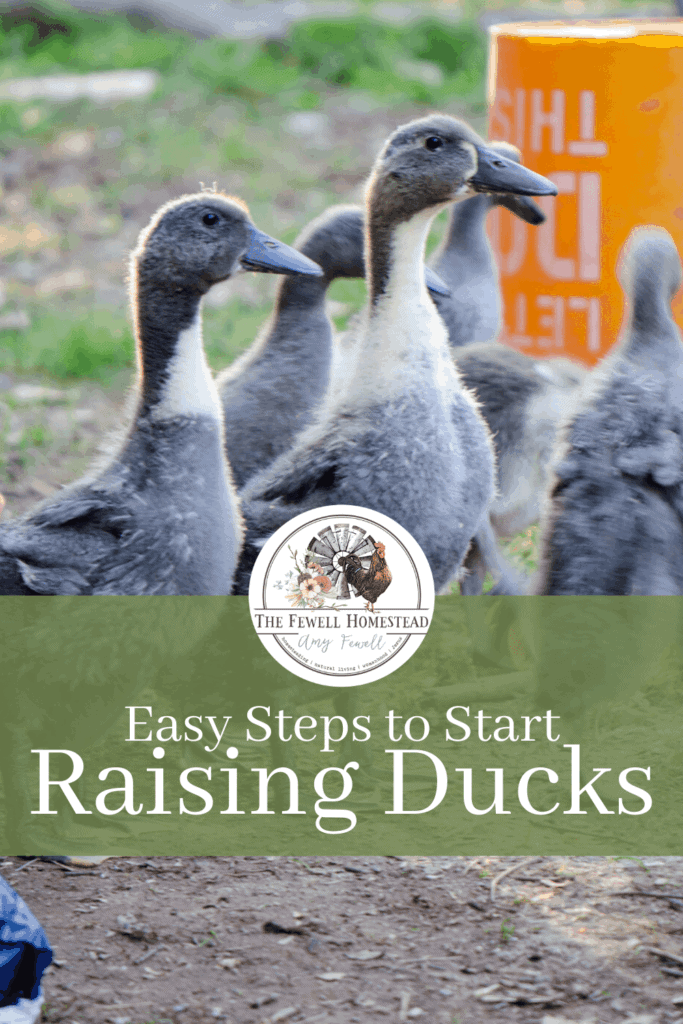
Where to Buy Ducks and Ducklings
You’ve decided you want to start raising ducks, but you’re not sure where to find ducks! There are a few different options.
- Buy ducklings from a hatchery
- Buy ducklings from a farm store
- Buy adult ducks (or ducklings) from a local breeder
Whatever you do, understand that most states have minimum limits on how many ducklings you can buy from a breeder or store.
It’s always best to purchase two or more ducklings or ducks. Ducks are flock animals, and they do better with a companion. Otherwise, you’ll have a very sad and screaming duckling on your hands!
Male to Female Duck Ratio
You’ll want to make sure that if you have a male duck, he has at least one female companion. The best ratio is three or more females to one male. If you have more than one male, you’ll want to ensure you have at least three females for each male.
If you have two males and no females, the males will bond until females are brought in. Then, they may begin to fight over dominance. Who knew raising ducks could be dramatic!?
Setting Up a Duckling Brooder
Duckling brooders aren’t much different than chicken brooders. You’ll need a structure, like a 40-gallon or larger storage tote, or an outdoor brooder. You’ll need a heat source like a brooder plate or a heat lamp.
Fresh water and feed is important. However, it’s most important to know that you should not use medicated chick feed for ducklings. Please make sure that you use non-medicated chicken starter feed for ducklings.
Ducklings grow very quickly, and they will make a big mess. Make sure you put their waterer on a stand so that they can’t climb around on the waterer and make a mess. And whatever you do, do not add a bowl of water to their brooder. You’ll regret it instantly. They are ducklings, after all! They like to play in water.
WATER NOTE: While ducklings love to swim, please don’t place your ducklings in water for long amounts of time. They need to rest frequently in-between short swims. So, have a little perch for them in the water if you feel the need to let them take a swim in the sink, tub, or kiddie pool.
You can send your ducklings outside and off of the heat lamp after two weeks, weather permitting. As they begin to grow feathers, you can let them transition outside. Once the temperature stays above 60 degrees at night (if they don’t have feathers), you can leave them outside without a heat lamp. If they do have feathers (fully feathered), they can go outside in any weather without a heat lamp, as long as they have shelter.
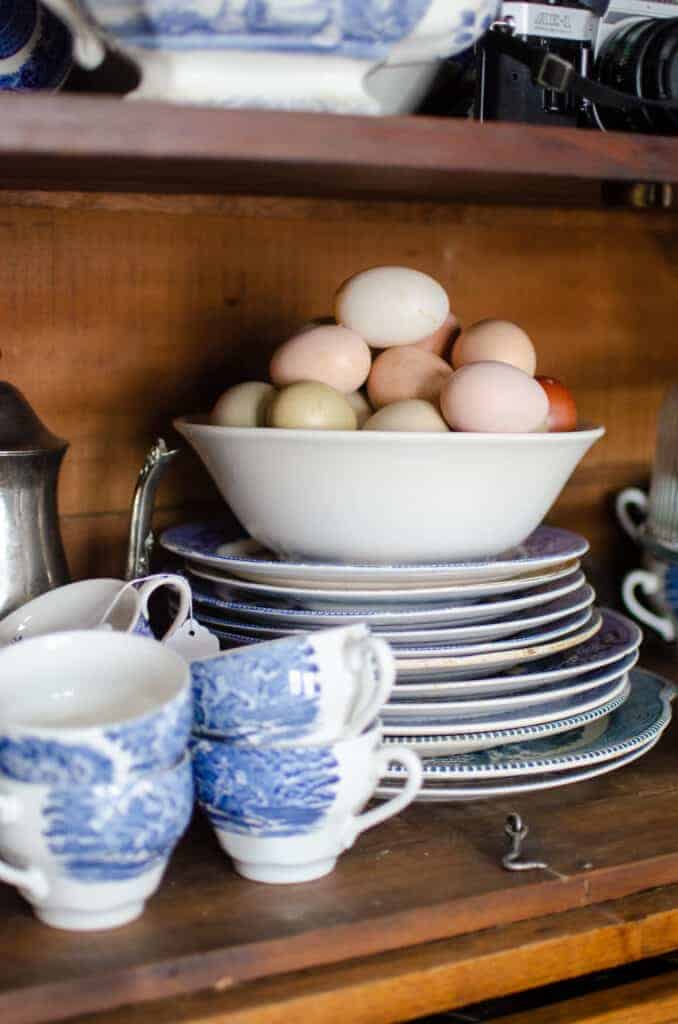
Duck Breeds for Laying Eggs
There are several different types of duck breeds for eggs that you can purchase. If you are raising ducks for eggs, you’ll want to make sure you are getting a consistent egg laying breed. Not all ducks are prolific egg layers.
Common egg laying duck breeds:
- Khaki Campbell
- Pekin
- Runner ducks
- Magpie
- Rouen
- Appleyard
- Hybrid duck breeds (such as the Gold Star Hybrids from McMurray Hatchery)
There are some ducks, like the muscovy, that lay more seasonally. Other ducks can lay throughout the entire year, while some breeds only lay from March through November.
Raising Ducks for Meat
I cringe when I think of meat ducks––I really love my ducks! But honestly, duck meat is oh so good. If you’re wanting to raise your ducks for meat, they are an exceptionally fast grower and great for the farmhouse table.
Here are some great duck breeds for meat:
- Muscovy
- Pekin
- Jumbo Pekin
- Rouen
- Khaki Campbell
Any duck can be a meat duck, but these breeds are fast growers and easier on the overall cost of raising your own meat.
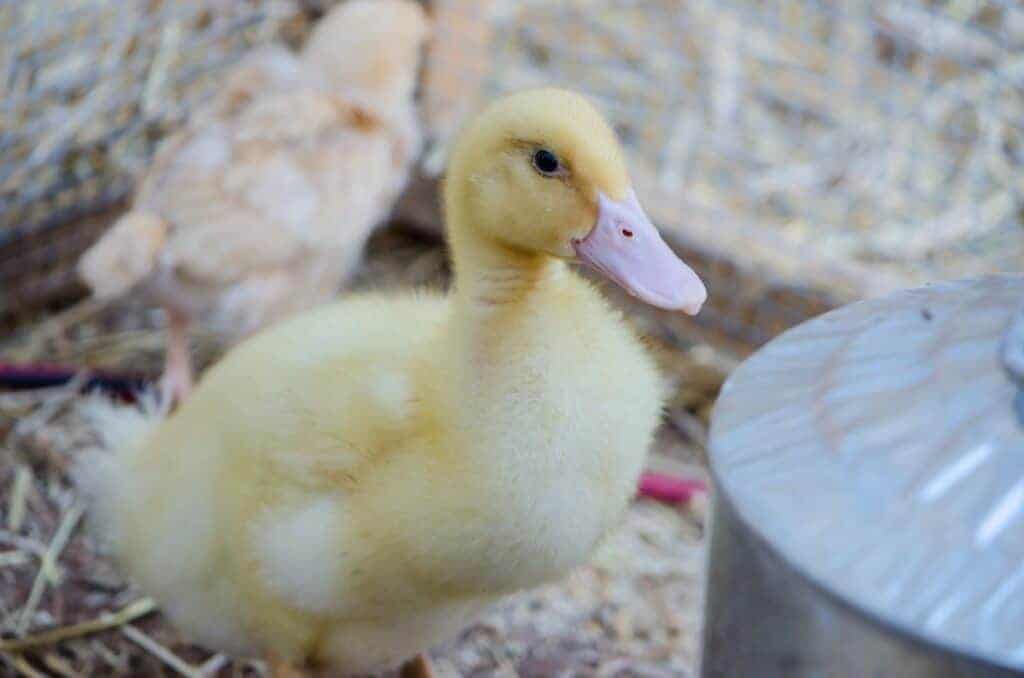
Feed for Raising Ducks
Ducks aren’t too needy when it comes to feed. Most duck breeds are incredible foragers, which helps offset the feed cost. You can feed ducks a generic 16% protein chicken feed that you get from the farm store. Or you can make your own chicken feed for your ducks.
Ducks love treats and table scraps as well. Just make sure you aren’t giving ducks a lot of carb filled treats, like bread or tortillas.
Water for Ducks
It’s a common misconception that ducks need a pond to live happily by. However, ducks do need a certain amount of water to help clear their nasal passages during the day. Try using a large rubber livestock feed bowl, or even a baby pool, for your ducks. This allows them to submerge their entire heads into the bowl or pool so that they can keep their airways wet and clean.
Don’t worry, it’s totally normal for ducks to dirty up their clean water in the first 2 seconds of getting in. So don’t fret about it too much!
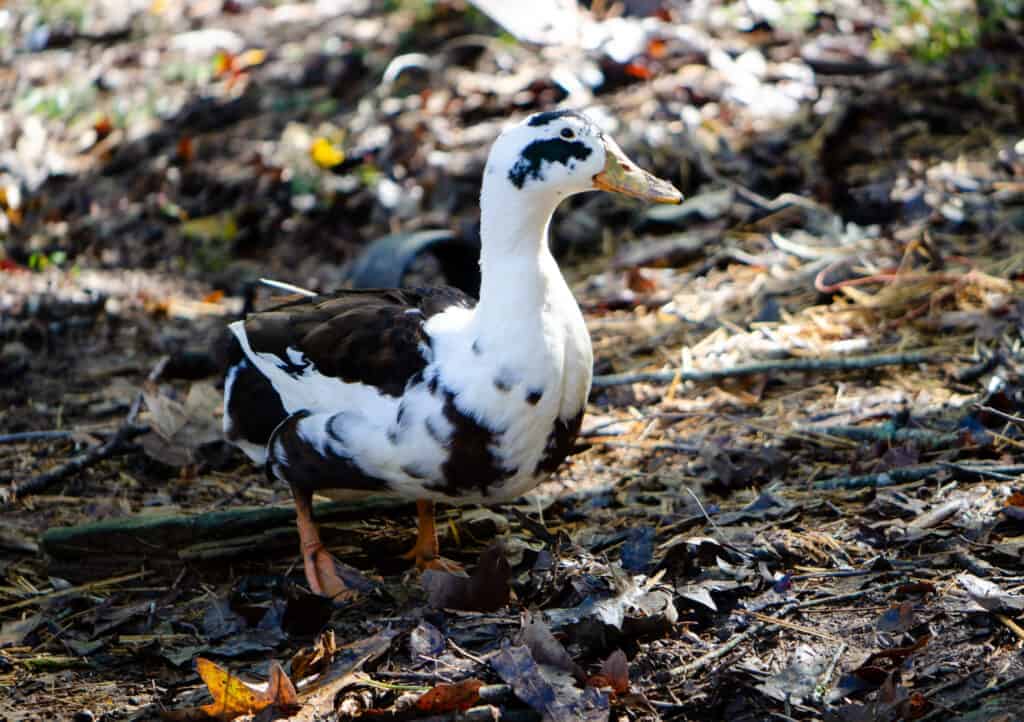
Housing for Ducks
Ducks tend to be more hardy than chickens. This means they are less susceptible to diseases, weather changes, and drafts. However, ducks still need a certain amount of shelter throughout the year. And if you’re raising ducks for eggs, they’ll definitely utilize that shelter to lay their eggs in.
You can use a dog house as a shelter for a few ducks. Simply stash some straw inside and they’ll be set!
Otherwise, any structure that is draft free or that can break the wind will do just fine. Yes, your chickens and your ducks can also house together in the chicken coop! Just keep in mind that your ducks will not perch. They will sleep on the floor of the coop. So make sure they have plenty of clean bedding!
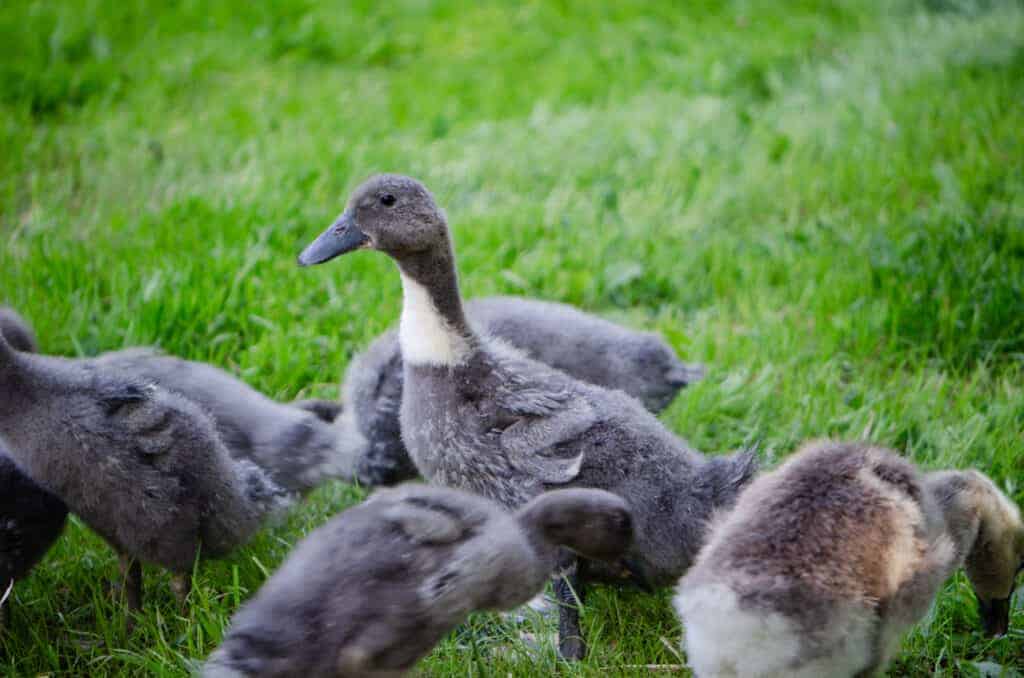
General Tools and Supplies for Raising Ducks
Ducks aren’t too needy, but if you’re going to raise ducks, make sure you have all of these supplies on hand before you get started.
First Aid Supplies
Other Supplies
- duck feed (or just chicken feed)
- hanging chicken feeder
or if you prefer bowls, a rubber chicken feed bowl - chicken waterer or bowl
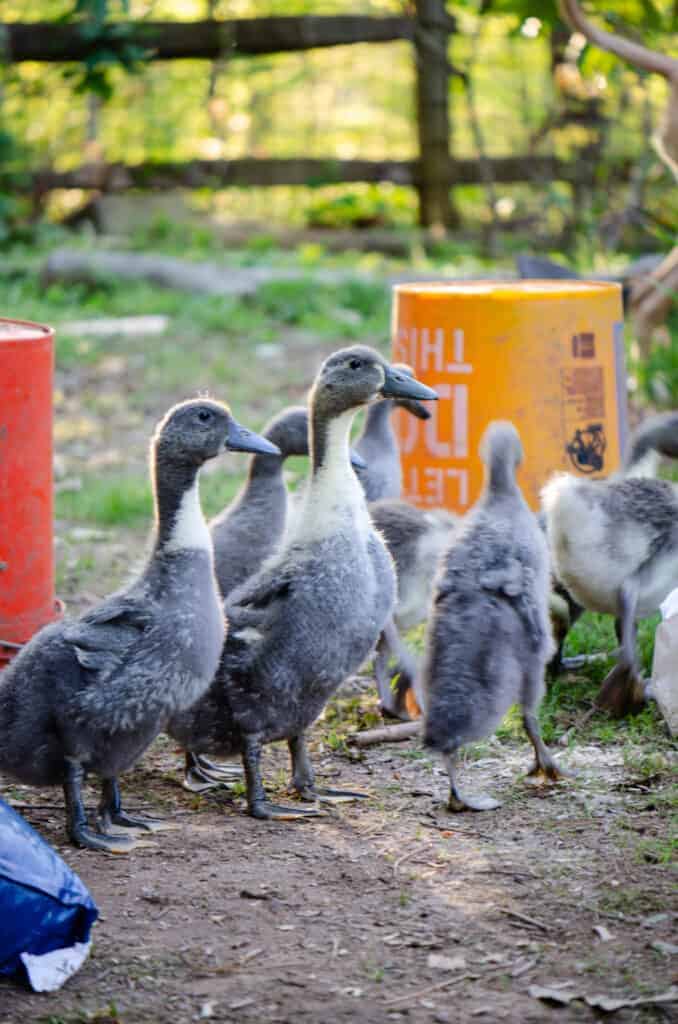
Watch for Diseases and Illnesses
Once you have your ducks, there’s really nothing to it. You just feed and water them everyday. If you want to give them extra supplements, you can. But it’s not always a necessity.
I do attribute my ducks’ good health to the herbs we give them in their feed each week. You can find a list of herbs and how to use them in this blog post.
Enjoy your ducks!
The last step, enjoy your ducks! They are amazing creatures and you’re really going to be entertained by them. More than anything, spend time with them, and enjoy those beautiful orange yolks you’ll be baking with if you’re raising ducks for eggs!



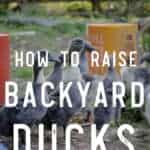


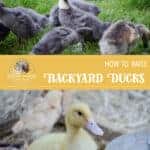


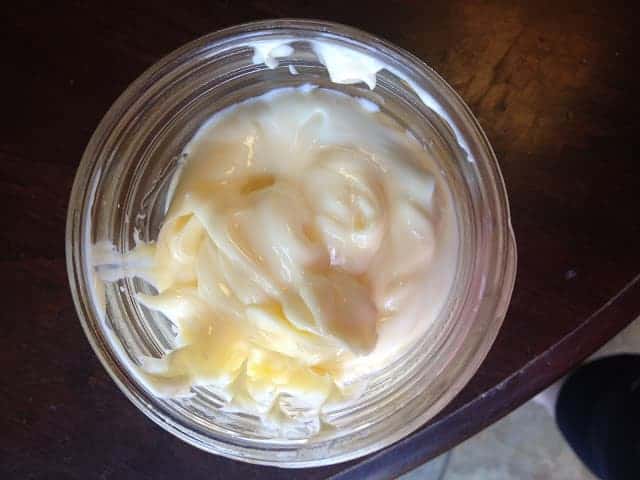
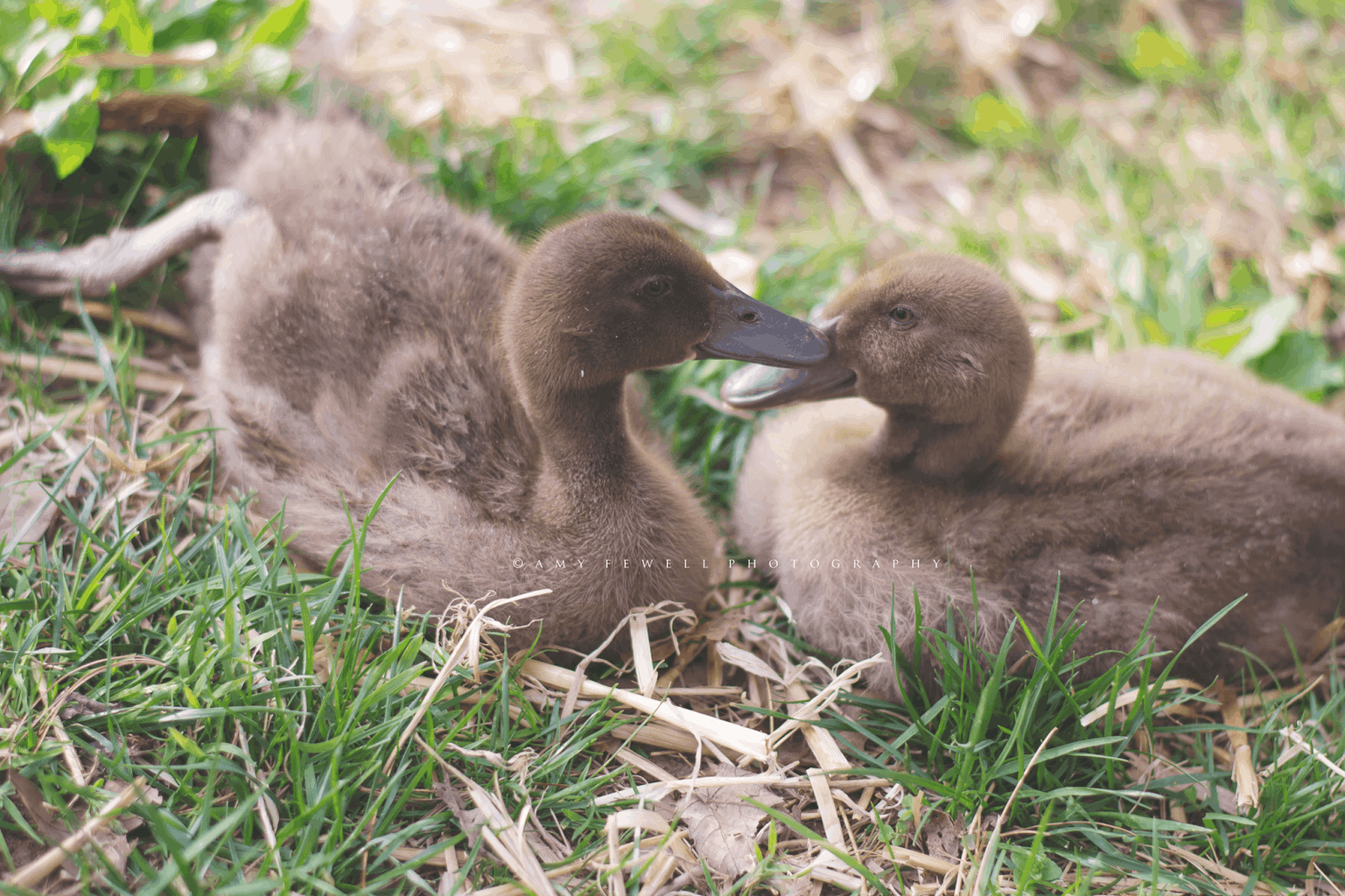

Leave a Reply